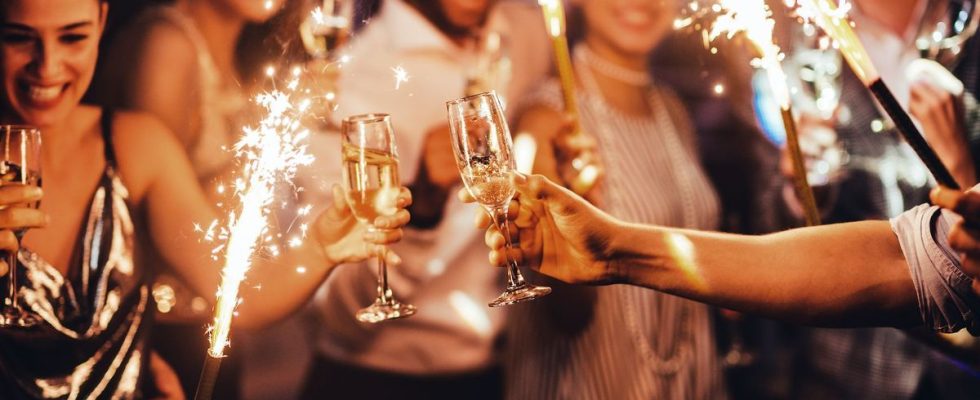Published on
Updated
Reading 2 min.
Have you ever wondered why you have a bad night after a night of drinking? The reason is physiological, as several experts explain. And unsurprisingly, it is not very good for your health.
Will that last drink help you sleep better? In these festive times when it is common to overindulge a little in good things, the idea sometimes catches on. However, although alcohol has a certain sedative effect, this is only ephemeral. And that last drink could end up ruining your night. This is what several experts explain in an article from The Conversation.
What happens in the body when you drink?
Besides feeling jovial, or uninhibited, do you already know what happens to your body when you drink? Shortly after drinking, alcohol enters your bloodstream and travels to your brain. There, it affects chemical messengers called neurotransmitters and slows communication between nerve cells. Certain regions of the brain are then more vulnerable to the effects of alcohol, these are those which lead to characteristic sensations of relaxation, a reduction in inhibitions, speech disorders and can induce feelings of drowsiness and lethargy.
Experts also say that alcohol can have effects on the heart and circulatory system. Blood vessels dilate, causing blood pressure to drop, which can cause dizziness. Does this speak to you?
Alcohol puts you to sleep, then wakes you up
Having a nightcap, for many, is seen as a switch: it will allow you to sleep better (or collapse), in an extremely relaxed state. And it is true that alcohol has a sedative effect… For a time only. Because over time, your brain will process the message differently.
“As your body processes the alcohol and your alcohol use level drops, your brain recovers from the sleepiness you would have felt earlier in the night. This disrupts your sleep and can wake you up several times, especially in the second half of the night. You may also have vivid, stressful dreams.”
Ultimately, those who drink regularly are also those who sleep the least effectively and who have the most difficulty recharging their batteries. So you can spend 10 hours in bed after a drunken evening, there is a good chance that you will you stood up with a very tired face.
You can’t imagine New Year’s Eve (or another festive evening) without toasting? According to experts, however, there are tips to enjoy without ruining your night behind.
- Alternate alcoholic and non-alcoholic drinks. Try swapping every other drink for a non-alcoholic drink. Reducing the amount of alcohol you drink during a session can minimize the effects on your sleep;
- Avoid drinking alcohol close to bedtime. If you give your body a chance to process alcohol before you go to sleep, your sleep will be less disrupted;
- Eat while you drink. Drinking on an empty stomach will worsen the effects of alcohol because it will be absorbed more quickly;
- Avoid caffeinated drinks. Caffeine can make it difficult to fall asleep and stay asleep;
- Drink a lot of water. Staying hydrated will help you sleep better and hopefully avoid the worst hangover the next day.
Finally, be careful if you have sleep apnea. This is because alcohol can act as a muscle relaxant, leading to more snoring and lower blood oxygen levels. If you have sleep apnea, limiting the amount of alcohol you drink is the best way to avoid these effects.

